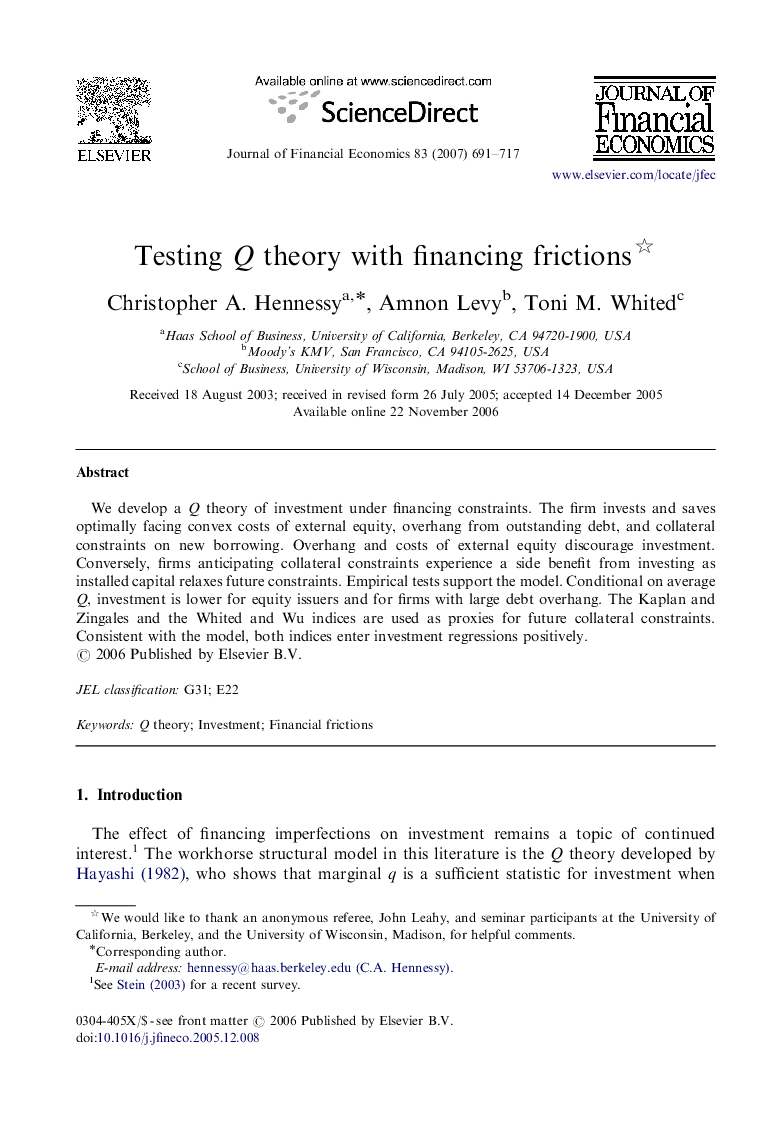| Article ID | Journal | Published Year | Pages | File Type |
|---|---|---|---|---|
| 959999 | Journal of Financial Economics | 2007 | 27 Pages |
We develop a Q theory of investment under financing constraints. The firm invests and saves optimally facing convex costs of external equity, overhang from outstanding debt, and collateral constraints on new borrowing. Overhang and costs of external equity discourage investment. Conversely, firms anticipating collateral constraints experience a side benefit from investing as installed capital relaxes future constraints. Empirical tests support the model. Conditional on average Q, investment is lower for equity issuers and for firms with large debt overhang. The Kaplan and Zingales and the Whited and Wu indices are used as proxies for future collateral constraints. Consistent with the model, both indices enter investment regressions positively.
